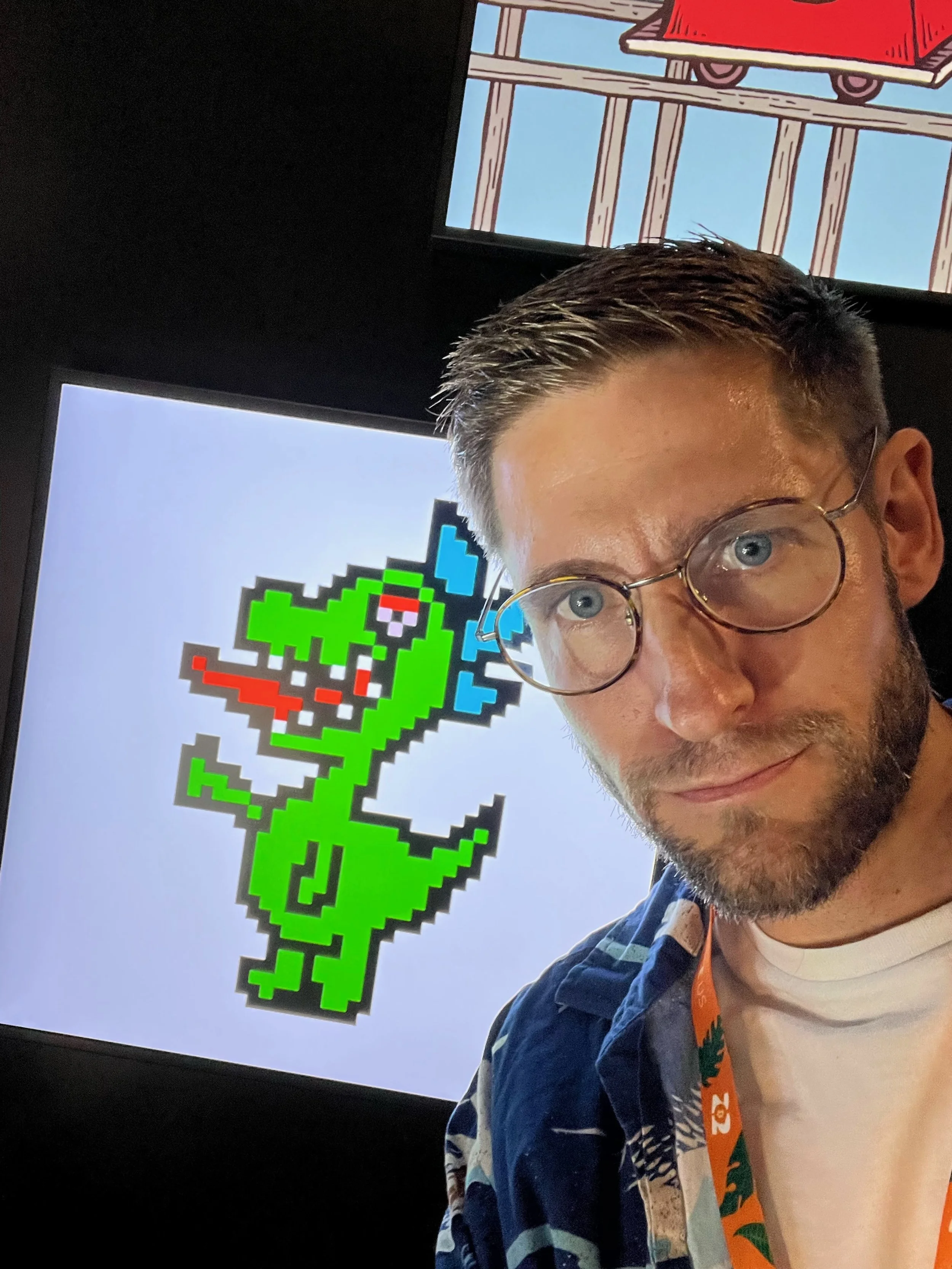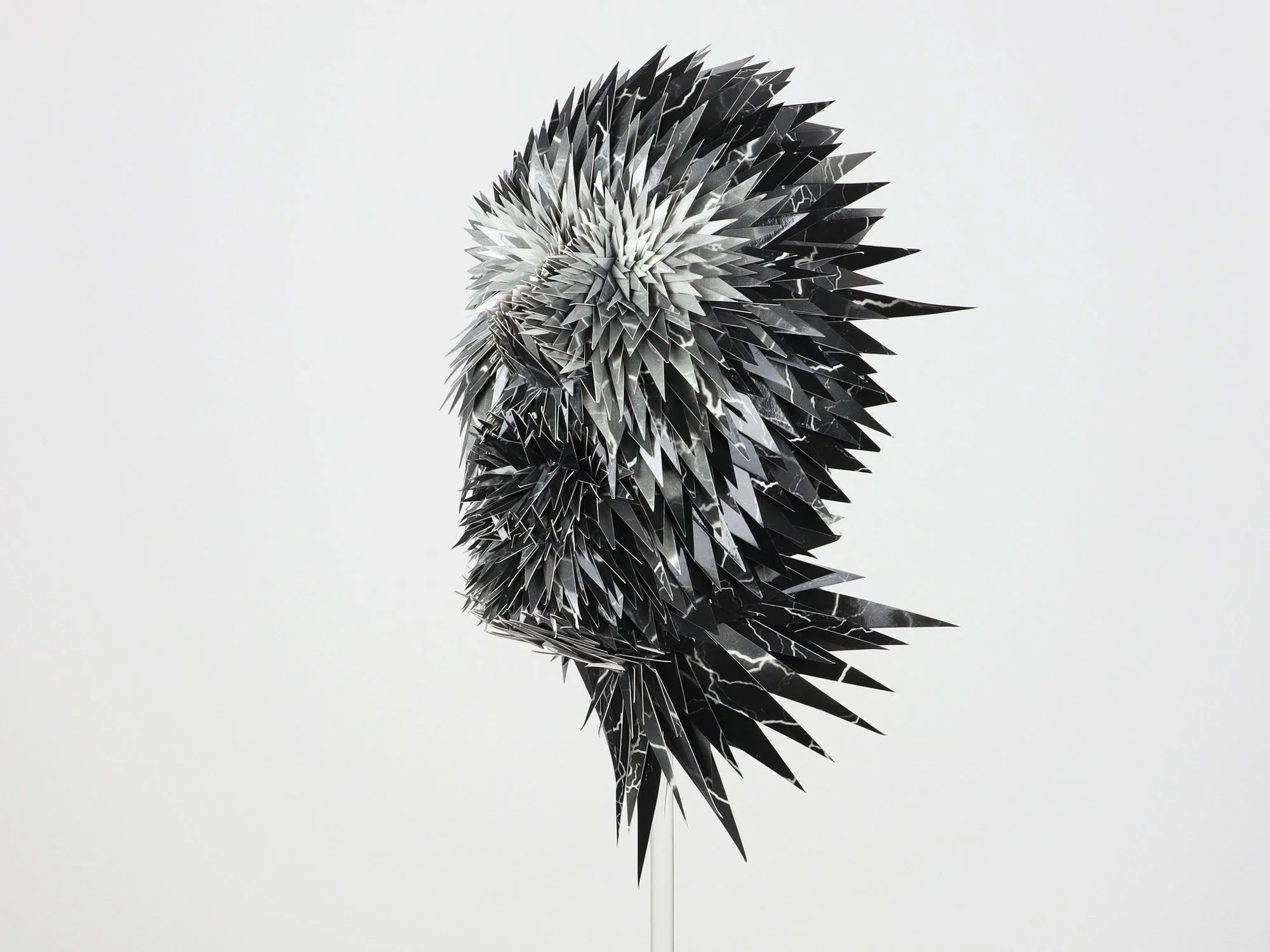10 Questions with XCPinata
The artist behind XCPinata (Kevin Ferreira) is one of the first artists to combine art and blockchain, having worked on Bitcoin, NFTs, and blockchain (Crypto Art) projects since 2014. Through a history of trying to create "digital originals" and working with cutting-edge technology, the artist brings awareness to the perceived value in the cryptographic tokens in and of themselves.
XCPinata Collection is a limited set of Historic NFT counterparty assets issued in 2015 that reward collectors with continued airdrops.
Kevin Ferreira - XCPinata - Portrait
ARTIST STATEMENT
The XCPinata assets were created at a time when the artist was experimenting with art and blockchain in order to realize the dream of digital originals. Previously the artist had been creating digital art for years which had no other way to become "unique" digital works other than printing the image. The artist's thinking (which led to XCPinata and other crypto art/projects) is most important for the historical significance of these pieces. From these initial assets being minted, the artist went on to create various blockchain projects and content. In order to keep with the original spirit of art, experimentation, playfulness, and blockchain, the artist created the XCPinata project to reward collectors and share the thinking that art is a token in and of itself.
In 2014 the artist was creating and studying fine art and realized the blockchain would enable the "Tokenization of Everything", including his art! The artist could finally have "digital originals" if only they could figure out how to get an image/file "on chain". The Counterparty.io platform enabled the creation of tokenized assets, so the artist started to create tokens representing items, art, IP, people, and more. Twenty-four of these assets were selected by the artist for inclusion in the XCPinata project.
SNAKE, NFT, 2015 © XCPinata
RHINO, NFT, 2015 © XCPinata
INTERVIEW
Let's start with your background and formative years. Could you tell our readers how you started experimenting with images?
I first began creating art in 1985 at the age of three, and I clearly remember sculpting an alligator made out of papier-mâché, the same material used for a lot of piñatas.
How did you get involved with digital and crypto art?
With a passion for animation my whole career, I've been working with digital art, and by looking for new digital tools, I happened to discover blockchain and fell down the bitcoin rabbit hole beginning in 2013. With the discovery of blockchain, I began to imagine and think of novel ways to use blockchain with art which led to launching my first crypto-artist project in 2014.
You were among the first artists to start working with NFTs and blockchain. How difficult was it in the beginning to explain this concept? And how did things change over the past couple of years?
I was super excited about the potential for using blockchain to change how artists are compensated for their work and finally have what I called "digital originals". I vividly remember trying to explain what it was to a few of my peers in the art world, and most didn't understand it at first, and some openly ridiculed the idea, but, I think from my enthusiasm, they began to indulge me and listen to the potential ideas. It's been really interesting for me because I was able to witness the birth of an entire industry around NFTs. Even the terms were fun to see come into being. Like I said, I started with the term "digital originals", but then I started using "blockchain secured editions", and now we have the popular term Non-Fungible Token or "NFT". The past couple of years has been wild because it seems that the idea of true digital ownership has just started to click for so many people. Artists have benefited in this industry first, and I really hope we can keep honoring that spirit of compensating artists for their work. If too many people come to chase money instead of focusing on the art and artists, we may lose the thread and have something entirely different than what was first imagined.
Can you tell us about the process of creating your work? What aspect of your work do you pay particular attention to?
My processes are fluid, and I like to describe them like the invention of the paperclip. For centuries we had the ability to make the paperclip, but it took someone with the ingenuity and thought to take materials that already existed and shape them into the invention of the paperclip. In this same process, I take tools, materials, software, and blockchains that exist and think of new ways to use these for what ultimately becomes my art and projects.
CHEESECAKE, NFT, 2015 © XCPinata
SANDWICH, NFT, 2015 © XCPinata
COOKIES, NFT, 2015 © XCPinata
ICE CREAM, NFT, 2015 © XCPinata
Your works are traditional digital pieces, almost vintage in their appearance. Yet, the technology you use is one of the most innovative. How did you come up with this idea?
The vintage appearance of the XCPinata Collection is very much on purpose. I grew up in the '80s, so I played a lot of Nintendo and have a personal affection for the very digital 8-bit aesthetic.
Why did you choose this style for your works? And what were your sources of inspiration?
I wanted the images to be simple in appearance (style) since the focus of this collection is on the token assets in and of themselves. For me, the visual representation acts like a marketing image, and the token which is immutable is art.
Recently we have been relying more and more on digital presentations, like fairs and exhibitions. What are your thoughts on these types of presentations? Do you think these are good opportunities for artists?
Absolutely, because these opportunities increase exposure for artists and unless the artist doesn't want their work to be seen, getting the work out there and showing it to others is a great way to have people remark and begin talking about the work. Artists, in my opinion, have to groom their egos and be the first to talk about their own work because no one can do it better, and no one will care more about your work than yourself.
PAINT, NFT, 2015 © XCPinata
PENCIL, NFT, 2015 © XCPinata
What are you working on now, and what are your plans for the future? Anything exciting you can tell us about?
Currently, I'm working with a few companies in a consultant capacity for their NFT projects. I've been thinking about crypto, NFT, and art for longer than most and can offer a unique perspective with useful advice. As for my own work, I've been experimenting with some AI tools and will be releasing a collection of tokenized assets that take their aesthetics from some of my older artwork transformed using this process.
What do you hope to accomplish this year, both in career goals and personal life?
This year I hope to continue supporting my current collectors with new artwork, and I'll continue to bring in new collectors to share my ideas, thoughts, and vision of my art.
Finally, what is one piece of advice you would give to an artist that wants to start working with crypto and digital art?
Working with crypto or digital art can seem daunting at first, but there are wonderful community members that can help guide you as well as a world of resources online for many project needs. Decide what you'd like to create, and then find those people or resources to help you execute that vision. Don't be discouraged, and just keep creating. Moving forward, no matter how slowly, will always be better than stopping or giving up. Believe in your voice and know that each of us has something unique to say.












